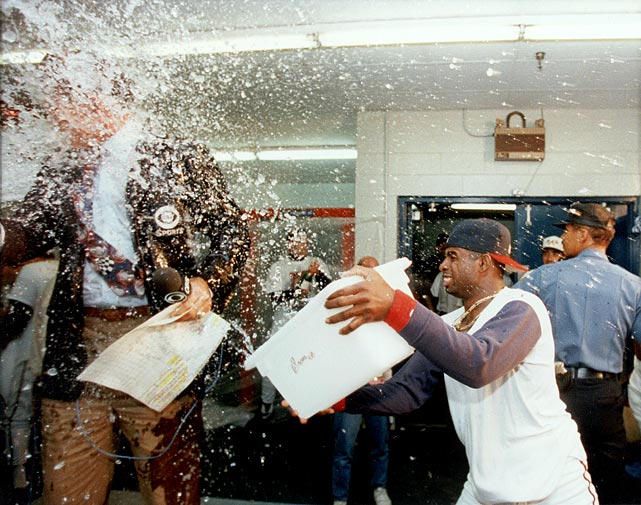
One of the most talked about articles in our little space of the internet recently was Mike Wilbon's piece for The Undefeated about race and analytics.
I didn't post about it, because I really didn't have much to add to the discourse that wasn't already being said. But it did lead to two interesting interviews on the Hot Takedown Podcast from 538. The first featured Wilbon and quickly turned into a battle of worldviews - pro and against analytics. The second, with Chris Herring of the Wall Street Journal, went a little deeper into the cause of the chasm between traditional sports journalism and analytics. And the idea of locker room access as a normative value in sports journalism came up. From Herring on the podcast
Ozzie Guillen would always critique the hell out of Jay Mariotti because he said that guy never sets foot in my clubhouse, and so how can you criticize the game and this team when you're never here, and you're basically not man enough to set foot in the locker room that you're criticizing. And so there's always this idea that you can't be fully respected if you're not spending time around the game and are in front of the players and talking to the players.
This is a very big topic, one I'm looking at in my own research and hope to explore here a little more. But there's one point here worth making about what Herring says about access.
The idea of being in the locker room isn't always about having access to players.
It's also about players having access to you.
When Ozzie Guillen railed against Jay Mariotti for not being in the clubhouse (a criticism Mariotti, Mike Lupica and a lot of high-profile columnists have been receiving from their peers for years), it's not just out of some notion that the only way to tell a story about sports is by talking to the players.
It's about accountability.
Mike Vaccaro taught me that lesson years ago, he repeated it to my students earlier this semester, and he's one of several reporters who have said this. The idea is that if you write something on Monday ripping a guy, you damned well better show up on Tuesday. Let him see you. If he wants to talk about it, if he wants to yell at you, if he wants to try to throw a punch at you, if he wants to passive-aggressively say loud things when you're close to his locker, he can do that.
The idea is to be accountable for what you write, what you say. Not in a phony "man-up" sort of way, but in an real, professional way.
We as journalists demand accountability from the people we cover. Rightfully so. It's only fair that we are accountable in person ourselves.
